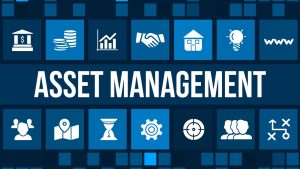The age of students sitting in rows staring at a textbook or the board while the lecturer is teaching in the front of the class is long gone. As the advancement in technology in education and classrooms adopting more and more cutting-edge technology, education is evolving fast.
Machine learning is one such revolutionising technology that can transform the entire educational experience for educators as well as for students.
Wondering how exactly computers can help with education? Here are the top 6 ways machine learning can transform education.
Support educators
From organising and managing content, administration work, individual student data to student progress, machine learning will help educators perform their daily work way quickly saving them time. Thus, educators will have more time to spend on more complex tasks that cannot be handled by the AI.
With machine learning, teachers won’t have to carry textbooks everywhere as they can access course content online. Plus, they can share the content and lesson plans with students before the class, enabling them to get ready for the lesson.
Unbiased grading
With machine learning, you can command the computer to grade students. Thus, teachers won’t have to spend hours checking papers manually.
Since the process is automated, you will no longer experience errors or mistakes happen in the grading process. On top of all, it improves the student grading process eliminating human biases from grading.
Customised learning experience
In a classroom learning pace of students and the way, each of them comprehends concepts can be different, and machine learning provides a perfect solution for this. It allows educators to offer their students a customised learning path to fit their learning pace and learning challenges.
So, with machine learning, learning deliveries for students will be much more useful than typical teaching methods.
Predictive analytics
Machine learning will predict student development behaviours for you, allowing you to understand your students well. It will predict how well students will do in each of their classes by analysing repetitive actions of the students. With this, teachers will be able to identify children’s issues before they get worst and help them improve.
For example, if a student is falling behind in geometry, his mathematics teacher might be able to come up with a custom lesson plans to help him understand the lesson better.
Assessment
The assessment takes a lot of time out of teachers schedules from, to prepare assessment papers, share them with students, collect them and grade them. Machine learning can streamline this very process, increasing its efficiency.
With machine learning, all teachers have to do is, upload the assessment online and share it with the corresponding class. This way, teachers will be able to organise all the assessment of the year and each class, he teaches, in one place while enabling students to access assessments and submit them online as requested.
Increased efficiency
Taking care of many tasks and processes, machine learning can improve efficiency in the overall educational experience delivered to a student. It will enable you to grade most of your exam papers and assessments, manage your student information, help you analyse your students, help you create customer learning paths for individual students and more.
With this educational experience will be highly tailored to students’ needs making the learning experience more productive. Thus, everything will be fast as well, because it will only take a few minutes for the computer to grade all the papers of a class.
Also, Read:
How does the school management system helps in cost saving?
How a school management system makes the enrollment process hassle-free?
Do education institutions need a student information system?






